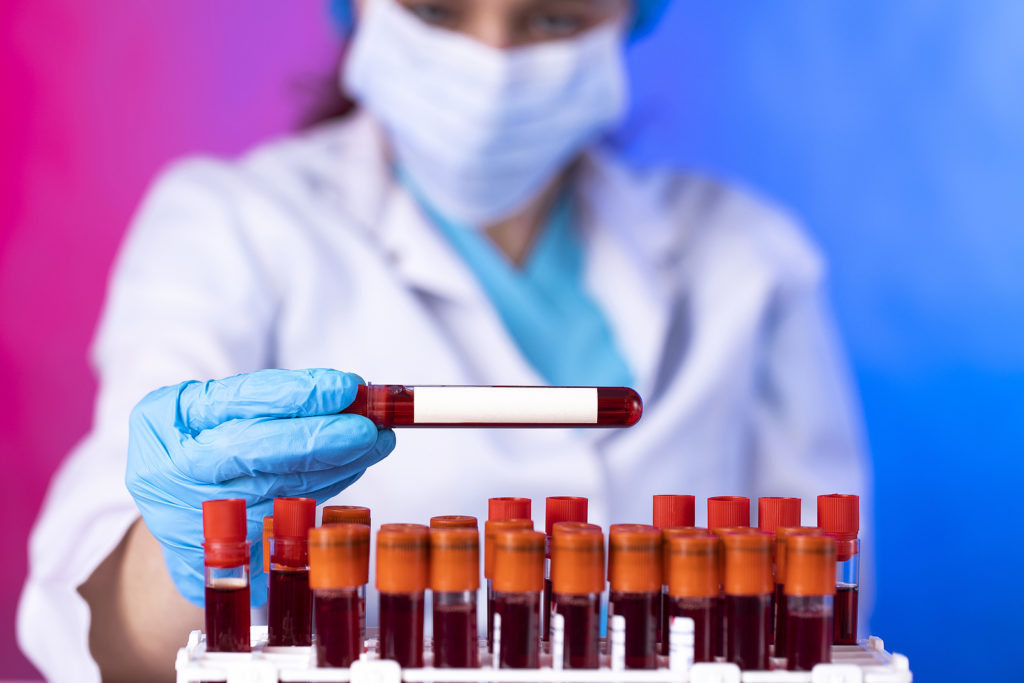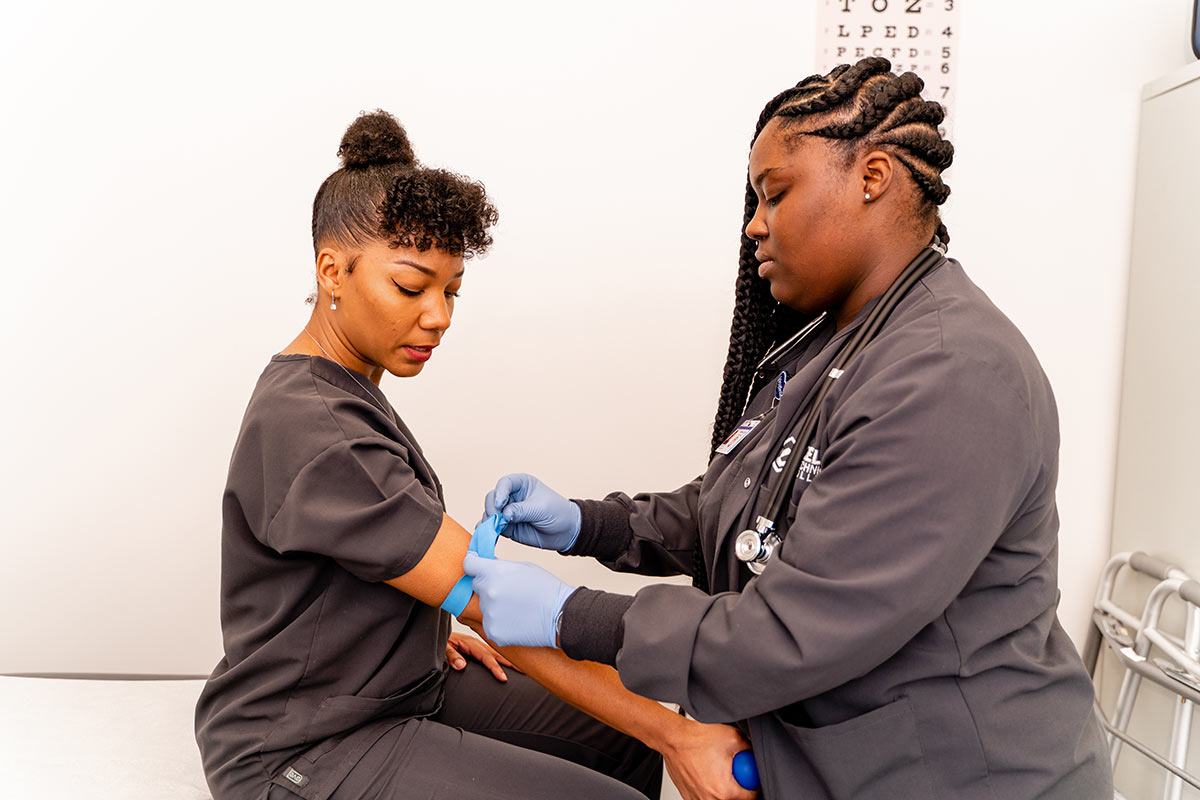Phlebotomy Courses Near Me: Step-by-Step Application Process
The Path to Accreditation: Comprehending the Phlebotomy Educating Course Trip and Its Importance
As you think about the path to accreditation in phlebotomy, it's crucial to comprehend the function you'll play in health care. Your training will cover crucial abilities, from blood collection strategies to patient communication. Each part of the program prepares you for the difficulties in advance. However just what does the journey involve, and why is accreditation so vital for your future occupation? Allow's discover these inquiries additionally.

The Duty of Phlebotomists in Health Care
Phlebotomists play a vital role in the medical care system, functioning as the important web link between individuals and important analysis testing. You'll carry out blood attracts, ensuring examples are accumulated precisely and securely. Your experience helps in detecting medical problems, keeping an eye on health, and assisting therapy decisions.
In your everyday communications, you'll need to develop trust with people, making them really feel comfortable throughout what may be a difficult experience. You are in charge of classifying and dealing with examples carefully to stop contamination or mistakes, which could impact examination outcomes.
Beyond this, you'll typically function along with medical professionals and registered nurses, communicating essential information about patients' conditions. By grasping your skills, you contribute meaningfully to client care, making you an essential component of the clinical group.
Review of Phlebotomy Training Programs
When discovering phlebotomy training programs, you'll locate numerous types developed to fit different schedules and learning styles. Each program aids you create important abilities like blood collection and person interaction. Recognizing these choices is crucial to choosing the best course for your job.
Sorts Of Educating Programs
Numerous sorts of training programs are offered for those looking to become skilled in phlebotomy. You can pick from certification programs, which normally last a few months and concentrate on necessary skills. There are also diploma programs that supply a more comprehensive education and learning, commonly lasting up to a year. If you're looking for a much deeper understanding, an associate degree in an associated field could be the best fit. On-line programs offer versatility for those balancing job or family dedications, allowing you to research at your own speed. Additionally, some hospitals and centers supply on-the-job training programs, supplying practical experience while you discover. Whatever path you pick, each program aims to furnish you with the required abilities for a successful phlebotomy job.

Trick Abilities Developed
Mastering phlebotomy requires a set of essential skills that are established with detailed training programs. You'll discover technical skills like appropriate capillary choice, needle insertion, and blood collection methods. These hands-on practices guarantee you can carry out procedures safely and efficiently. Additionally, communication skills are fundamental; you'll need to interact with patients, explain procedures, and placed them at convenience. Recognizing makeup and physiology is essential, also, as it aids you situate blood vessels and recognize the body's action to blood attracts. You'll acquire understanding of safety methods and infection control, assuring you preserve a sterile environment. Each of these abilities is crucial for your success as a qualified phlebotomist, making you an important possession in any type of medical care setting.
Key Elements of a Phlebotomy Course
In a phlebotomy program, you'll concentrate on important topics that lay the groundwork for your future job. You'll involve in hands-on training that enables you to apply what you have actually learned in real-world setups. Both the curriculum and functional experience are important for your success as a phlebotomist.
Curriculum Introduction
While going after a phlebotomy training program, you'll experience a curriculum created to furnish you with basic skills and understanding. Phlebotomy Training Course. This educational program normally consists of anatomy and physiology, focusing on the circulatory system and comprehending blood parts. You'll additionally find out about different types of blood collection methods, including venipuncture and capillary puncture methods
Furthermore, infection control and safety and security methods are necessary elements, ensuring you understand how to maintain a sterilized setting. You'll examine patient interaction, emphasizing interaction and compassion, which are vital for reducing client anxiousness. Ethical and lawful considerations will certainly be resolved, preparing you for real-world responsibilities. This fundamental understanding will enable you to excel as a phlebotomist and give high quality treatment in medical settings.
Hands-On Training Experience
Obtaining hands-on experience is an essential component of your phlebotomy training program. This useful training enables you to use what you have actually discovered in a real-world setting, enhancing your skills and self-confidence. You'll exercise venipuncture methods, learn how to handle various kinds of specimens, and obtain familiar with the devices made use of in the field. Under the assistance of skilled teachers, you'll improve your abilities, ensuring you're planned for any circumstance you may encounter.
In addition, you'll obtain the possibility to interact with clients, which is essential for establishing your interaction skills. This combination of technical efficiency and interpersonal abilities is crucial for your success as a qualified phlebotomist. Eventually, hands-on training is where concept meets technique, solidifying your expertise and preparedness for qualification.
Qualification and Licensing Requirements
Before you can begin your job in phlebotomy, it is vital to comprehend the certification and licensing demands that vary by state. Many states require phlebotomists to hold a certification from an identified company, such as the National Phlebotomy Organization or the American Culture for Professional Pathology. These qualifications generally entail passing an exam that tests your knowledge and skills in the area.
In addition to accreditation, some states have particular licensing requirements. You may require to complete a particular variety of hop over to here hours in medical practice, send evidence of training, or go through a history check. It is necessary to investigate your state's guidelines to make certain you meet all needed standards.
Remaining educated about these requirements not only assists you safeguard a placement however also improves your reputation as an expert. By meeting these needs, you'll be well on your way to a successful job in phlebotomy.
Hands-On Training and Practical Experience
Hands-on training and practical experience are important components of your phlebotomy education, as they allow you to use theoretical expertise in real-world circumstances. Throughout your training, you'll involve in supervised venipuncture, discover appropriate techniques, and become familiar with various blood collection devices. This straight participation is vital for constructing your confidence and refining your skills.
You'll work carefully with skilled professionals who can assist you through the nuances of individual communication and sample handling. Each session not only reinforces your understanding however likewise prepares you for the busy setting of health care settings.
Additionally, numerous programs include medical rotations, enabling you to experience varied setups, from healthcare facilities to outpatient facilities. This direct exposure aids you adapt to different challenges and person needs, guaranteeing you're well-prepared for your future duty. Welcome these possibilities, as they're necessary to becoming an experienced and compassionate phlebotomist.
Difficulties Faced During Training
While acquiring hands-on experience is vital, it's essential to recognize the difficulties that can arise throughout your phlebotomy training. You may encounter anxiety when doing procedures on real individuals, particularly if you're discover this info here new to the atmosphere. The pressure to obtain whatever right can be frustrating. Furthermore, grasping the skills needed for blood draws takes method; you may have problem with strategy initially.
Time management can likewise be a difficulty, as harmonizing theory, functional sessions, and individual dedications can really feel intimidating. You might face varying discovering paces amongst your peers, causing feelings of insecurity if you believe you're falling behind. Ultimately, adapting to the various individualities of trainers can be tough, as each might have an one-of-a-kind training design.
Recognizing these challenges beforehand can prepare you for success and help you establish durability throughout your training journey.
Career Opportunities After Certification

As you gain experience, you might also think about specializing in locations like pediatric or senior citizen phlebotomy, accommodating particular individual requirements. Some phlebotomists pick to progress their professions by becoming lab technicians or pursuing more education and learning in medical care fields.
Additionally, your qualification can bring about duties in training or managing new phlebotomists, permitting you to share your knowledge. With the health care industry continually growing, your skills will always remain in need, leading the way for a steady and satisfying occupation. Accept the opportunities waiting for you!
Often Asked Inquiries
What Is the Normal Duration of a Phlebotomy Training Training Course?
Phlebotomy training courses generally last around four to eight weeks. You'll engage in hands-on technique, classroom direction, and online understanding. Finishing this training prepares you for accreditation and a fulfilling job in medical care.
Are Online Phlebotomy Courses Available?
Yes, online phlebotomy programs are available. They use versatility and ease, enabling you to study at your very own speed. Just verify the program is recognized to fulfill qualification requirements and acquire valuable abilities for your occupation.
How Much Does Phlebotomy Training Commonly Cost?
Phlebotomy training generally sets you back in between $700 and $2,500, relying on the program and place. You need to take into consideration variables like program size, consisted of materials, and hands-on experience when selecting the ideal training for you.
What Prevail Requirements for Phlebotomy Training?
Common requirements for phlebotomy training commonly include a senior high school diploma or GED, booster shots, and a background check. Some programs may likewise need basic medical care knowledge or certifications, ensuring you're planned for hands-on training.
Can I Work While Finishing My Phlebotomy Training?
Yes, you can work while finishing your phlebotomy training. Several trainees equilibrium tasks with their studies, yet make certain to handle your time efficiently to ensure you meet both work and training commitments successfully.